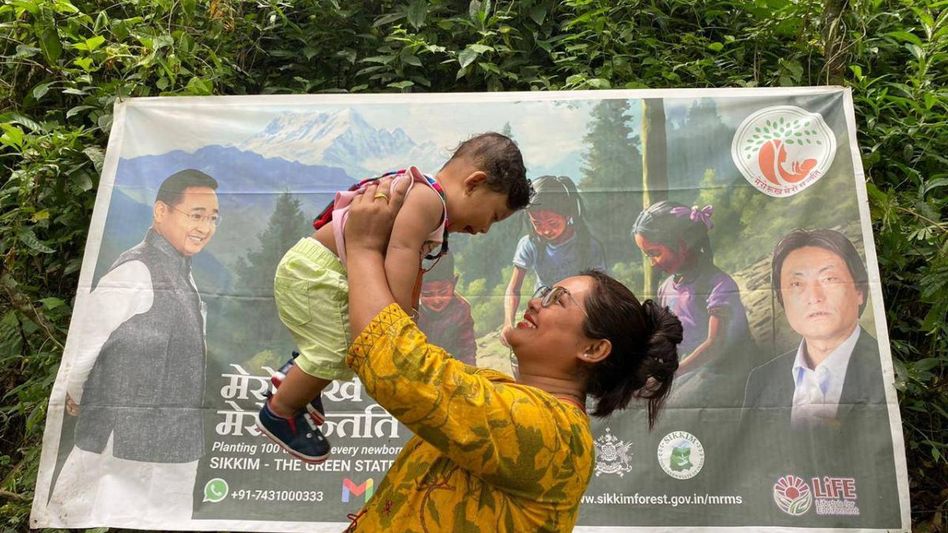Sikkim's 'Mero Rukh Mero Santati' initiative takes center stage at COP28 in Dubai
Sikkim's "Mero Rukh Mero Santati" initiative emerged as an unexpected beacon of hope and innovation in the fight against climate change at the Conference of Parties (COP28) in Dubai.
 Sikkim's "Mero Rukh Mero Santati" initiative emerged as an unexpected beacon of hope and innovation in the fight against climate change at the Conference of Parties (COP28) in Dubai.
Sikkim's "Mero Rukh Mero Santati" initiative emerged as an unexpected beacon of hope and innovation in the fight against climate change at the Conference of Parties (COP28) in Dubai. As the world anticipates the 28th United Nations Framework Convention on Climate Change (UNFCC) Conference of Parties (COP28) in Dubai from November 30 to December 12, 2023, Sikkim has emerged as an unexpected beacon of hope and innovation in the fight against climate change. The "Mero Rukh Mero Santati" (MRMS) initiative, pioneered by the Government of Sikkim, is set to take center stage at the India Pavilion during COP28, showcasing India's global climate leadership and a novel approach to addressing one of the world's most pressing challenges.
The MRMS initiative, often referred to as "Mero Rukh Mero Santati," is rooted in the profound significance of the number '108' within Indian spiritual traditions. Symbolizing universal wholeness and completeness, '108' has taken on a new and profound meaning in the context of environmental conservation. Under this initiative, 108 trees are planted for every newborn child in Sikkim. Beyond its spiritual connotations, MRMS is a practical and visionary step towards achieving a 'Net Zero' India.
This initiative goes beyond symbolism. It actively encourages community participation in afforestation efforts, rewards conservation actions, and offers incentives to retain trees by offsetting opportunity costs linked to alternative land uses.
What sets MRMS apart from traditional environmental initiatives is the remarkable blend of cultural resonance and practical environmental conservation. This initiative transforms the age-old practice of tree planting into a deeply meaningful and personally rewarding endeavor. When parents plant 108 trees in the name of their newborn child, they are essentially gifting them a life unburdened by the debt of carbon emissions.
Even more remarkable, the 108 trees planted for each child can more than offset the average annual per capita carbon footprint for an Indian citizen at current levels. This initiative enables ordinary citizens to take a direct and tangible role in the larger goal of achieving a 'Net Zero' India.
Sikkim's MRMS initiative aspires to foster a self-sustaining culture of tree planting, further strengthening the state's commitment to environmental conservation. By transforming individual citizens into environmental foot soldiers, it sets the stage for community-led carbon credit programs, empowering local communities to reap direct benefits from carbon sequestration.
All newborn citizens in Sikkim are eligible beneficiaries under MRMS, and the state government is actively encouraging voluntary participation. Embodying the principle of intergenerational equity, MRMS also seeks to enhance the environmental legacy for Sikkim's future generations. In its inaugural year, more than 3,000 newborn children have been registered under the MRMS initiative.
Copyright©2025 Living Media India Limited. For reprint rights: Syndications Today









